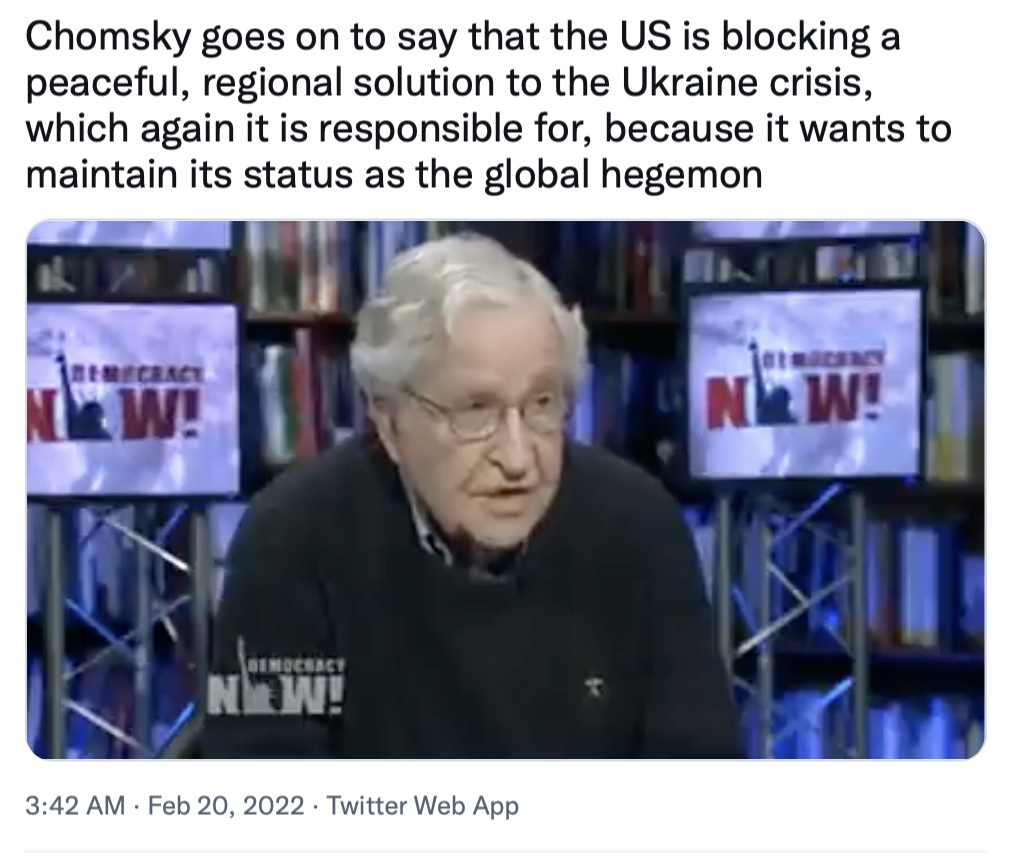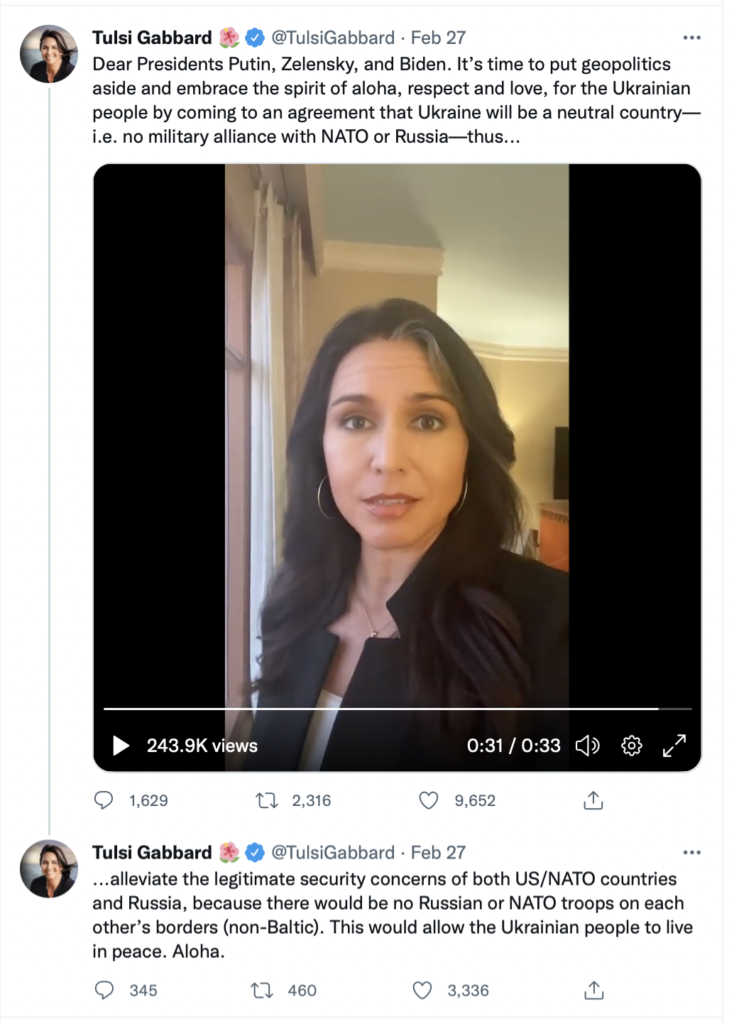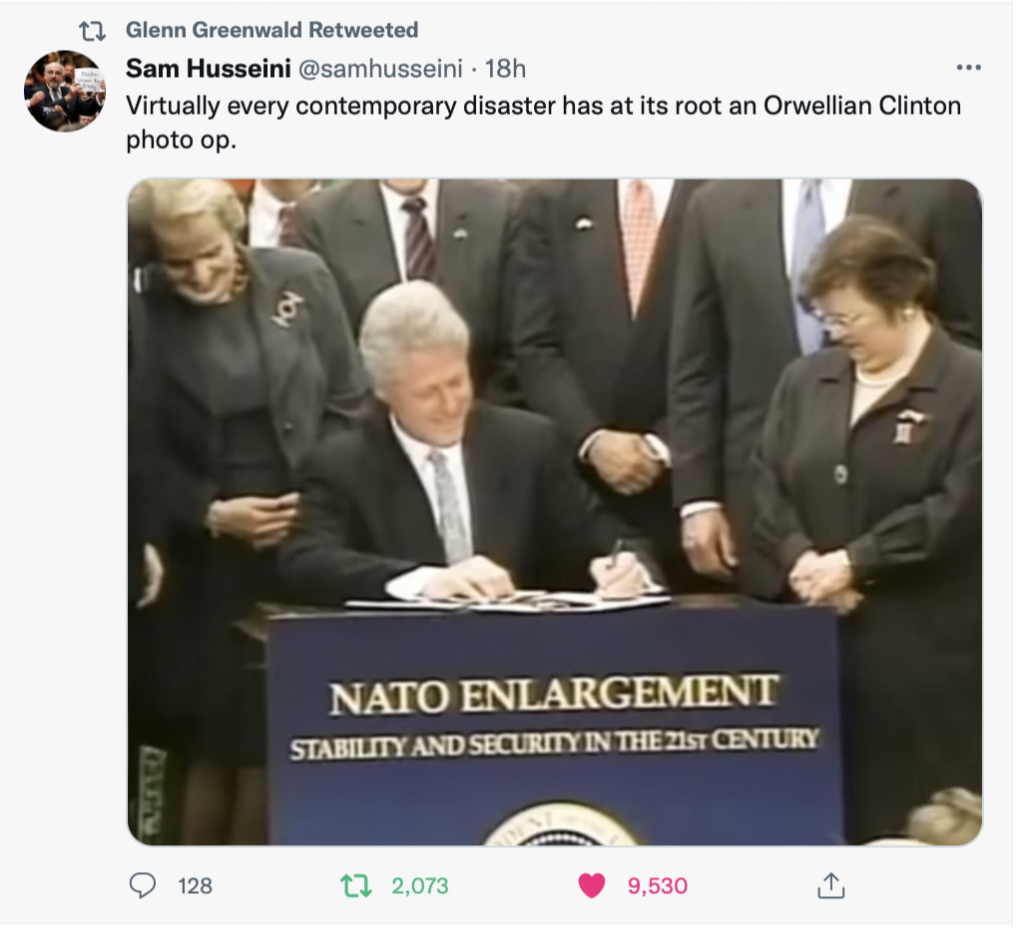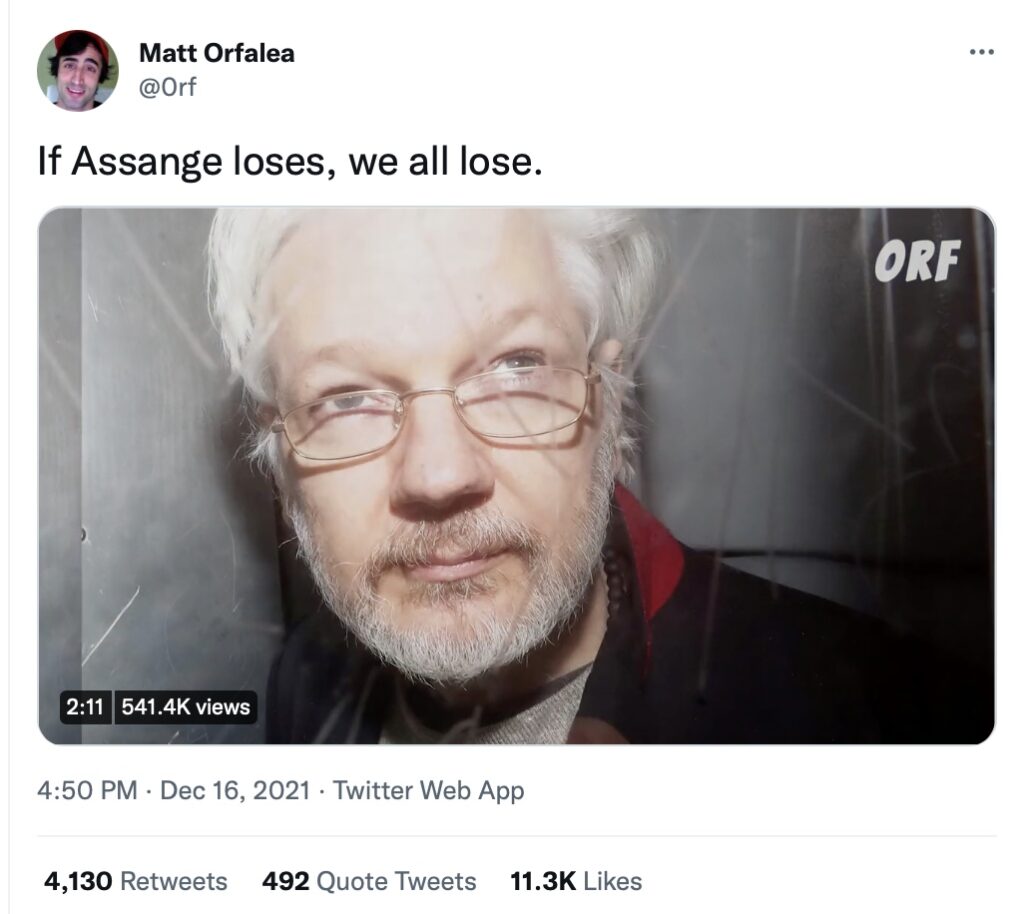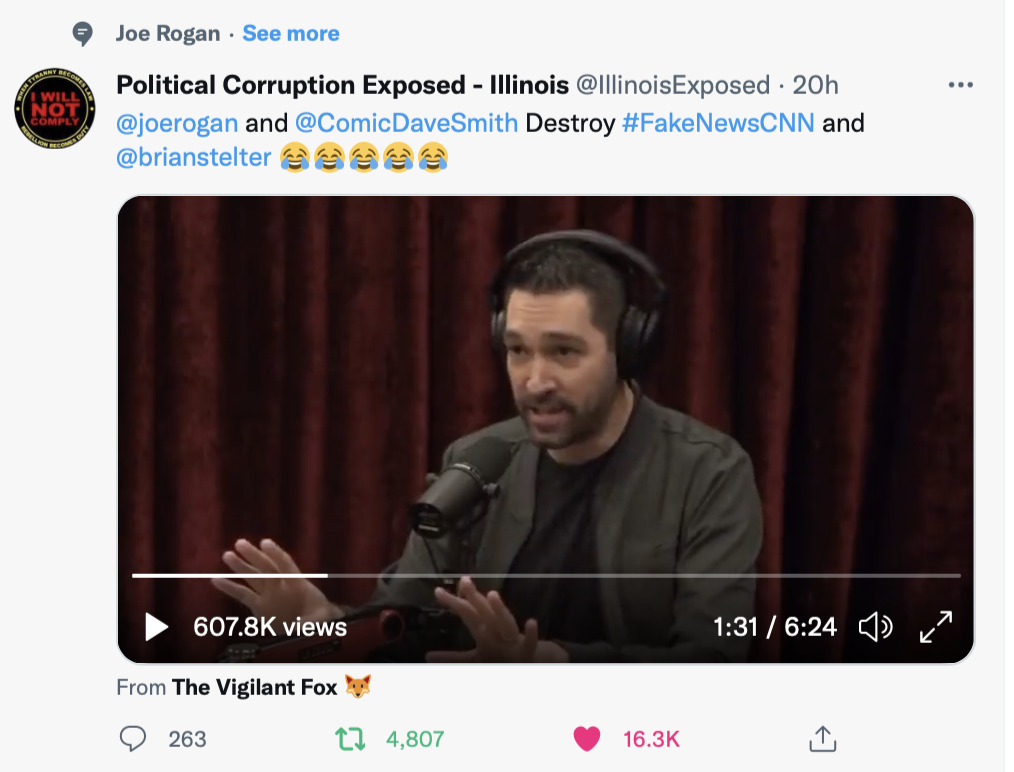Ukraine: Forbidden Discussions
I'm despondent that the mainstream news outlets are so intensely jingoistic, so focused on the logistics of war, so unwilling to look into the mirror. This is not surprising given the vast numbers of retired military and spy state talking heads who now work for the left leaning MSM. It's also unsurprising given that this is how war propaganda always works, illustrated brilliantly by "War Made Easy."
Here are a three snippets of conversation that I with the news media would take much more seriously:
First, this is from Freddie DeBoer's Substack:
[R]ight now, [the United States is] investing hideous amounts of treasure to maintain an order that we can’t afford and that no one really believes we can maintain. Perhaps the Ukrainians will beat back the Russians and they’ll be welcomed into NATO and we can all cheer that the good guys won. But hegemony does not last forever, and sooner or later you’re going to have to ask more adult, more useful questions than, “who’s the goodie, and who’s the baddie?” Otherwise the superpower eventually goes down the hard way.Second, Tulsi Gabbard tweeted this:I find myself considering this quote from a spokeswoman for the Chinese Foreign Ministry.
When the U.S. drove five waves of NATO expansion eastward all the way to Russia’s doorstep and deployed advanced offensive strategic weapons in breach of its assurances to Russia, did it ever think about the consequences of pushing a big country to the wall?It doesn’t take sympathy for Putin to see that this is a very good question.
Third, Matt Taibbi reminds us that history matters:
I would like to point out that we already tried regime change in Russia. I remember, because I was there. And, thanks to a lot of lurid history that’s being scrubbed now with furious intensity, it ended with Vladimir Putin in power. Not as an accident, or as the face of a populist revolt against Western influence — that came later — but precisely because we made a long series of intentional decisions to help put him there.Once, Putin’s KGB past, far from being seen as a negative, was viewed with relief by the American diplomatic community, which had been exhausted by the organizational incompetence of our vodka-soaked first partner, Boris Yeltsin. Putin by contrast was “a man we can do business with,” a “liberal, humane, and decent European” of “alert, controlled poise” and “well-briefed acuity,” who was open to anything, even Russia joining NATO. “I don’t see why not,” Putin said. “I would not rule out such a possibility.”
Fourth, this excerpt is from Glenn Greenwald's detailed analysis of our tribal dysfunction that mushroom when that exciting topic of war hits the tabletop:
In the weeks leading up to the Russian invasion of Ukraine, those warning of the possible dangers of U.S. involvement were assured that such concerns were baseless. The prevailing line insisted that nobody in Washington is even considering let alone advocating that the U.S. become militarily involved in a conflict with Russia. That the concern was based not on the belief that the U.S. would actively seek such a war, but rather on the oft-unintended consequences of being swamped with war propaganda and the high levels of tribalism, jingoism and emotionalism that accompany it, was ignored. It did not matter how many wars one could point to in history that began unintentionally, with unchecked, dangerous tensions spiraling out of control. Anyone warning of this obviously dangerous possibility was met with the “straw man” cliché: you are arguing against a position that literally nobody in D.C. is defending.. . .
There is a reason I devoted the first fifteen minutes of my live video broadcast on Thursday about Ukraine not to the history that led us here and the substance of the conflict (I discussed that in the second half), but instead to the climate that arises whenever a new war erupts, instantly creating propaganda-driven, dissent-free consensus. There is no propaganda as potent or powerful as war propaganda. It seems that one must have lived through it at least once, as an engaged adult, to understand how it functions, how it manipulates and distorts, and how one can resist being consumed by it.
I will end with a photo:
Chris Hedges: Our One-Party State
We live in a one-party state. The ideology of national security is sacrosanct. The cult of secrecy, justified in the name of protecting us from our enemies, is a smoke screen to hide from the public the inner workings of power and manipulate public perceptions. The Democratic courtiers and advisers that surround any Democratic presidential candidate – the retired generals and diplomats, the former national security advisers, the Wall Street economists, the lobbyists, and the apparatchiks from past administrations – do not want to curb the power of the imperial presidency. They do not want to restore the system of checks and balances. They do not want to challenge the military or the national security state. They are the system. They want to move back into the White House to wield its awful force. And now, with Joe Biden, that is where they are.
New Julian Assange Mashup Video Features Rachel Maddow Agreeing with Tucker Carlson re Julian Assange
When Rachel Maddow and Tucker Carlson passionately agree on a topic, it's time to stop and take notice. I despise the U.S. government's prosecution of Julian Assange. He has exposed marmongers and war criminals who remain free (many of them are even celebrated in the "news"). Matt Orfalea has compiled a mashup of concurring opinions across the political spectrum. Does the rule of law mean anything to Joe Biden? He could stop this insanity in an instant. The fact that he won't (and that Trump didn't) leads to a very dark place, the story of the great power of non-elected government officials and the power of the exorbitantly monetized U.S. spy state.
Comic Dave Smith Comments on CNN’s Unwillingness to Look Into the Mirror
CNN has intentionally and repeatedly pushed propaganda, including war propaganda. But they seem perfectly OK with that, as Dave Smith points out.
And now, because CNN's audience continues to shrink, and perhaps out of jealousy that so many people trust Joe Rogan, CNN has gone after Rogan.
Amazingly, CNN still has some dedicated followers: people who uncritically glue themselves to the tube and nod affirmatively. They are doing what many college students have done as they buy term papers from 3rd party providers. They are unwilling to do the hard work of sense-making, relying on a known corporate liar, one that brings lots of war hawks onto their shows to promote military involvement in the Ukraine, the latest alleged reason to spill American blood. This is pure insanity.
BTW, here is that video of Russell Brand imitating CNN's Brian Stelter. While CNN raises a piss-storm about the "problem" with Joe Rogan, it simultaneously parades out warmongers to promote warmongering without disclosing their histories or conflicts of interest.
- Go to the previous page
- 1
- …
- 25
- 26
- 27
- 28
- 29
- 30
- 31
- …
- 147
- Go to the next page

